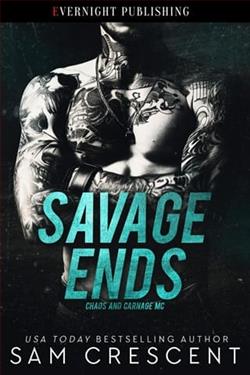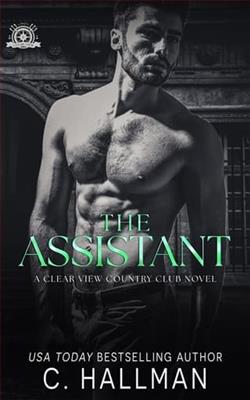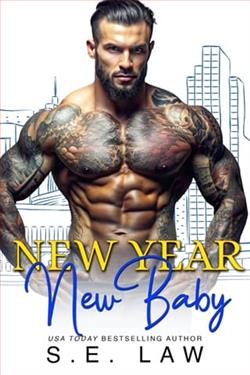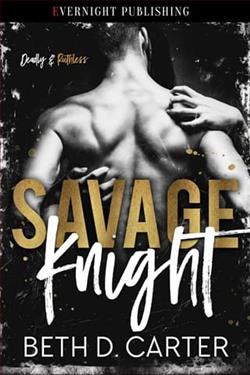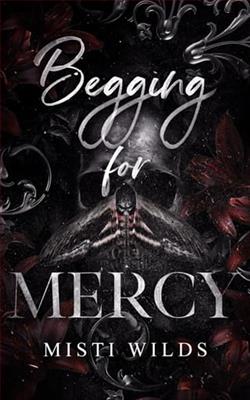Page 111 of Crocodile Tears
He woke with a start, his heart pounding. Glancing at the clock, he saw it was 4a.m. He wanted desperately to sleep, but he couldn’t face that dream again. He let his mind wander back to the past instead, trying to soothe himself.
The convoy was travelling through the largest lost zone on their route so far. The big trucks looked like a majestic herd of water buffalo as they chugged slowly through the grey expanse.
The crossing would take hours, but there was a blue sky and bright sunshine overhead, so Josiah opened the hatch on the lead truck, climbed up onto the roof, and sat above the driver’s cabin.
He was carrying his gun, but nobody was expecting any trouble in this area. The main difficulty was navigating a path through the remains of various towns, their church spires and tall buildings poking out dangerously above the water.
A system of buoys had been deployed, showing safe passage, but sometimes parts of old buildings broke off under the surface and caused obstructions.
He opened the brown paper bag containing his lunch and was busy munching on a tuna sandwich when he heard the hatch open behind him. A few seconds later, an inquisitive wet nose appeared beside him and started foraging in the bag.
“Hattie!” he scolded, breaking off a piece of his sandwich to share with her all the same. She sat down, and he put an arm around her, inhaling her warm, doggy scent.
A few seconds later, Peter climbed through the hatch and crawled cautiously along the truck’s roof. He sat down beside Josiah, holding up his own brown paper bag.
“Great minds think alike. It’s a nice day for a picnic.”
They ate their lunches in silence: the same silence that had lain between them since that night.
Peter cleared his throat. “My parents died when I was a kid,” he said unexpectedly. “My grandmother brought me up. She was a fantastic old lady – she turned ten on the cusp of the new millennium.She used to say that if they’d known then what the new century would bring, they wouldn’t have celebrated it the way they did.”
“Why are you telling me this?”
“Because you told me about yourself – about growing up in the Quarterlands and about your father dying because you couldn’t afford medical help. I understand where you’re coming from, and I’d like for you to understand me a little, too.”
“Oh, I understand you, sir.” Josiah suddenly wasn’t hungry anymore. He threw the remains of his sandwich to Hattie, who devoured it in a single gulp.
“You’re a drybaby, sir – that’s what we’d call you in the Quarterlands. You grew up in a nice dry home, where there was always enough money for food and medicine. You feel guilty about that, so you devote yourself to rescuing indies, even though it’s pointless and illegal and will almost certainly get you either arrested or killed one day. Or both.”
Peter laughed. “You’re probably right– except for the part about it being pointless.”
“Really? You’re risking your career and your life running an escape operation for indentured servants when it’s a drop in the ocean; you can’t possibly make a difference.”
“I made a difference to those people I dropped off at LKG the other night. Look, I don’t believe I can change the world, Joe – it’s too fucked up for that – but I do believe I can make a difference to a piece of it. If more people did that, then it would be a very different place.”
“Oh, for God’s sake – spare me the do-gooding crap.” Josiah scrunched his brown paper bag into a small hard ball. “What you’ve got is a bad case of survivor’s guilt – that’s what your grandmother had, and she passed it on to you.”
“Maybe you’re right,” Peter mused. “She was lucky – she was in the right place at the right time, so she didn’t lose her home. Her family had enough money to weather the dark years after the Rising and come out the other side. Have you ever wondered what it was like to live in the Pre-Rising world? They had so much and didn’t even know it. They took it all for granted.”
“We’re getting back to that now,” Josiah said gruffly. “People haveadapted. That’s what people do. They haven’t got any bloody choice. The ones who don’t adapt die – that’s how the human race progresses.”
“It’s just that one half of the human race usually achieves that progress on the backs of the other.”
Josiah rolled his eyes. “I didn’t. I pulled myself up on my own. Nobody gave me a helping hand, and I didn’t bloody well ask for one.”
“Yeah, but you’re special, Joe.”
Josiah glanced sideways to find Peter gazing at him earnestly.
“Well, you are. You must know I think that.” Peter smiled at him, his eyes twinkling, and Josiah had to force away the memory of that kiss.
“But throughout history, there’s always some kind of underclass enabling the others to live in comfort and prosperity. Call them what you like – serfs, slaves, servants – but they’ve always existed. We had a brief period of time when we were ashamed of that, but the minute we faced adversity, we reverted back.”
“Maybe that’s how the human race is supposed to work,” Josiah said gruffly. “Maybe it’s the only way itcanwork.”
“What do you mean?” Peter asked, looking genuinely interested.
Josiah was taken aback – nobody had ever asked for his opinion on anything intellectual or philosophical before – as Quarrie scum, he wasn’t supposed to have one.









